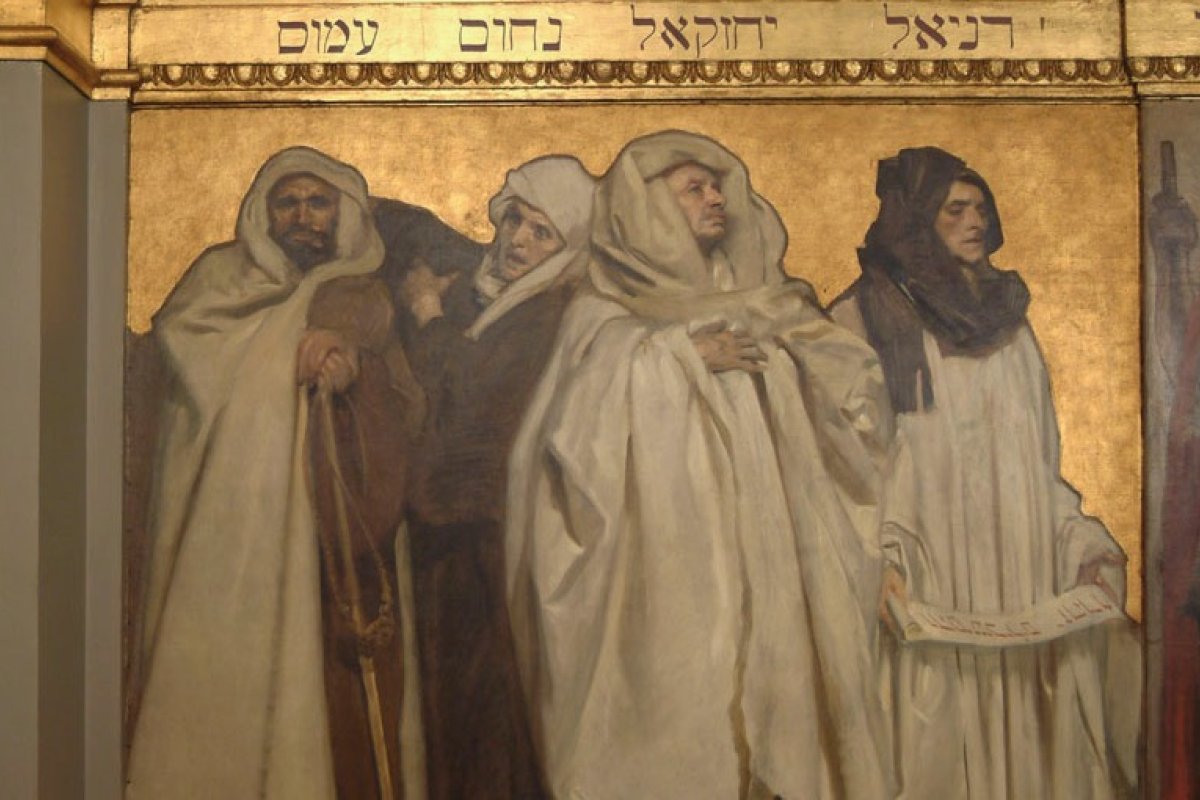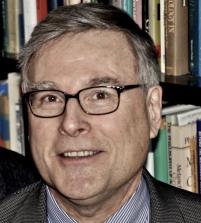
Time in a Prophetic Frame
Many voices in America today claim the mantle of prophecy; the differences between them are illuminating
The last months have witnessed a barrage of religion in the social life of the USA and around the world. With so much religion going around, what is a Sightings columnist to do?
Let me pick a topic not so much missed as it is misunderstood. We’ll see that the prophetic is alive and well in the USA, but that this forces us to make a distinction and a decision about what is, in fact, genuine prophecy. First, we need some history and analysis.
§1
Prophets have been historical players in Western religious and political life. On many accounts, the ancient Hebrew prophets condemned the wanton and unjust treatment of the poor, the suffering, the stranger, and the widow. They did so in order to expose the moral and religious rot in the lives of Judah and Israel that the prophets proclaimed led to the people’s downfall and exile, despite their ritual piety. Yet the prophets also looked forward to return and restoration when the people would again abide by the Mosaic or David covenants.
A complex dialectic was enacted wherein prophets both denounced present injustice to account for past religious and political failure (as we would now call it), but also announced the hope of a restored future, if and when the people returned to the God whose covenant made and sustained them. These developments are extremely complex, historically and exegetically; historians and biblical scholars are needed to help sort things out. Yet the prophets did voice ideas, values, and hopes that would roll down through the centuries in the West. The interweaving of past, present, and future under the umbrella of religion, morality, and politics continues to endure.
The prophetic claim can be analyzed as a configuration of human time, as the philosopher Paul Ricoeur would put it.[1] The prophetic frame gives form to, plots, human past, present, and future – not, I judge, within a strict causal sequence, but rather under convictions about what ought to be the shape and orientation of political life and the consequences of the failure to do so. However, the prophetic outlook on human time has taken radically different expressions in the United States over the last sixty years or so: differences that destructively collide with each other, and also sweep in the tangled and traumatic reality of race and racism in this nation. What do I mean? Consider two movements in the land.
§2
In a recent New York Times column, Ruth Graham wades into the proliferation of “self-described prophets” who “have proliferated across the country, accelerating in stature over the course of the Trump era.” But these prophets’ predictions have been wrong: Trump was not swept back into office on Inauguration Day. While some within the community have called for “greater accountability” when prophecies are or seem false, the movement nevertheless continues full tilt as part of the fastest-growing edge of the global Christian charismatic movement. The prophetic announcements are not only about the political; the realm of prophecies extends to, say, the outcome of the World Series and Trump’s supposed real inauguration on March 4, 2021. As pastor Scott Wallis told Graham, God does not leave people alone but is involved in all details of life: marriages and baseball games. As Graham notes, “Prophecy … is not only a predictive tool, but an analytical lens for making sense of the past and current events.”
A configuration of time, yes, but one, please note, that affirms, rather than challenges and chastises, the religious and political convictions of those to whom the prophet speaks. The human meaning of time unfolds not within the horizon of what a people ought to do and how they ought to live with justice among them, but, rather, under seemingly unshakeable conviction about its future vindication. Little wonder, as Graham notes, that there is fierce backlash against any “prophet” who apologizes for an error. One such prophet, Jeremiah Johnson, received death threats for saying that he was wrong: Biden did indeed win the election. Prophecy is risky business!
There is another tale of prophecy in contemporary America. The great prophets of Judah and Israel were centrally invoked in the Civil Rights movement of the 1950s and 1960s. Rev. Martin Luther King, Jr, was a close friend and associate of Rabbi Abraham Heschel, an authority on the Hebrew Prophets, and King always carried with him a copy of the mystic-prophet Howard Thurman’s Jesus and the Disinherited. Malcolm X decried how the nation and White religion had demeaned and dehumanized Black Americans. Recently, Jonathan Lee Walton, Dean of Wake Forest Divinity School, wrote an opinion piece in the Washington Post, claiming “The biblical prophets enunciated their divine call to be voices of the voiceless and defenders of the defenseless. They did not try to soothe or assuage listeners with euphemistic phrases. Their rhetoric was often blunt, unyielding and contentious.”
Importantly, Henry Louis Gates, Jr.’s production on PBS of The Black Church: This is Our Story, This is Our Song (appearing in print form as well) showed how the Black Lives Matter movement has continued the prophetic task of calling the nation to account in contentious and blunt ways. So, too, with the Poor Peoples Campaign led by Rev. William Barber, II, as well as the work of Black womanist thinkers in churches and the academy. This stands as a rightful continuation of the biblical prophetic framing of human time and the scourge of sinful injustice. Slavery and racism violate human dignity through the systematic injustices visited upon vulnerable people: denying them housing, income, employment, and disproportionately consigning them to a horrific prison system. These modern prophets—political as well as religious—call for America to return to its original promise that it has forsaken in the ruthless quest for wealth, white power, and nationalism. The prophetic spirit that animates the Black Lives Matter and other movements calls the nation back not just to its founding ideals of freedom, but equality of persons before the law and the right of political participation and economic opportunity. Like the ancient Hebrew prophetic texts, this prophecy is a denunciation of injustices insinuated into the creation of a nation and an annunciation that reconfigures our attention and national priorities. The prophetic framing of time hopes, insists, that justice should roll down through the ages.
So, a distinction and a decision must be made when religion, politics, and race are framed prophetically. How should we configure our nation’s time? Under what horizon, and to what account, do we seek a more perfect union?
[1] See Paul Ricoeur, Time and Narrative, trans. K. McLaughlin and D. Pellauer, 3 vols. (The University of Chicago Press, 1984-1988).
Image: A portion of John Singer Sargent's mural, "Frieze of Prophets," in the Boston Public Library. (Boston Public Library, via Creative Commons)
Sightings is edited by Daniel Owings, a PhD Candidate in Theology at the Divinity School. Sign up here to receive Sightings via email. You can also follow us on Facebook and Twitter. The views and opinions expressed in this article are those of the author and do not necessarily reflect the position of the Marty Center or its editor.


